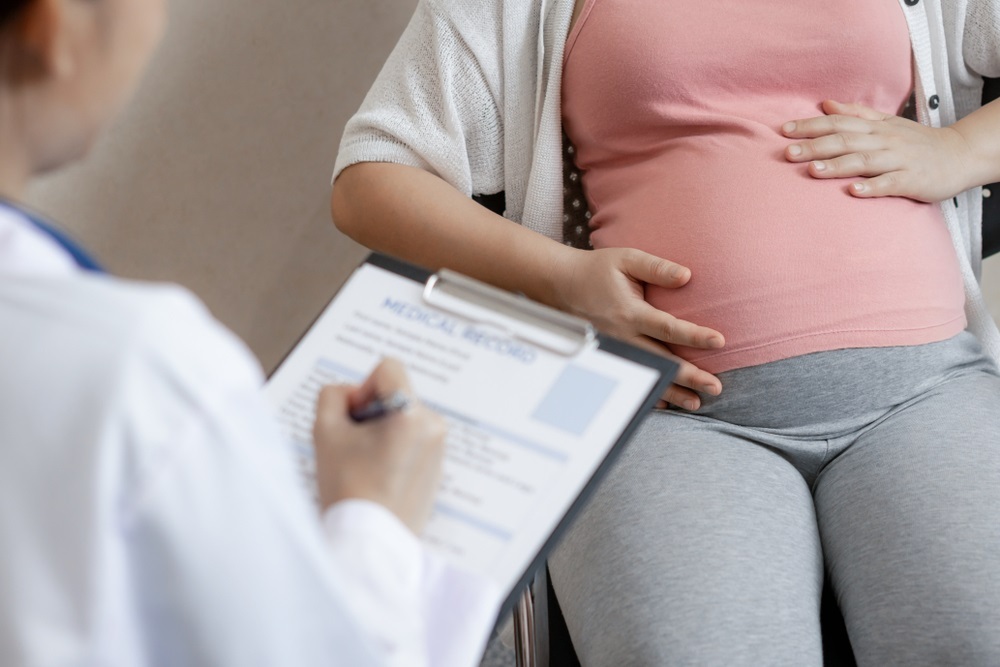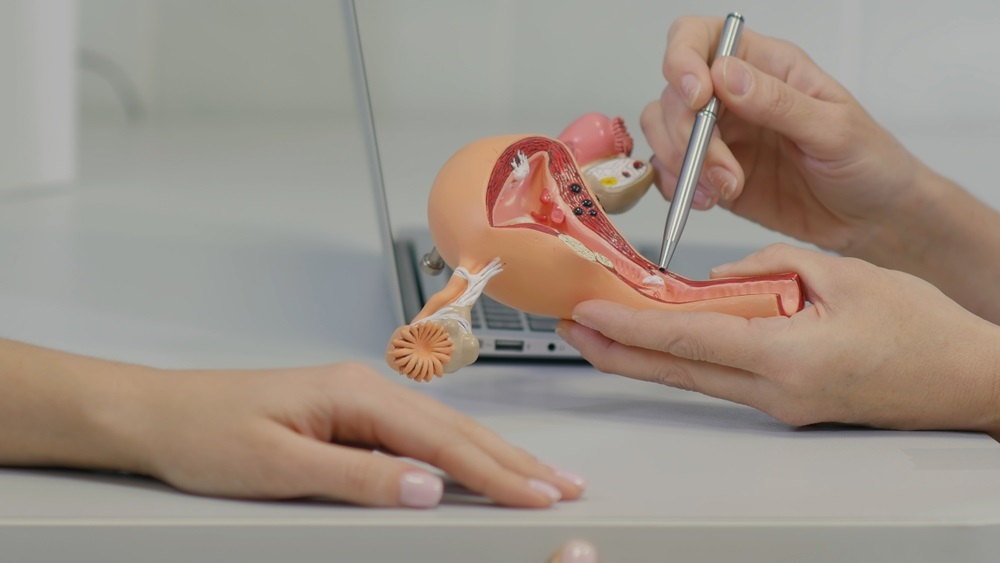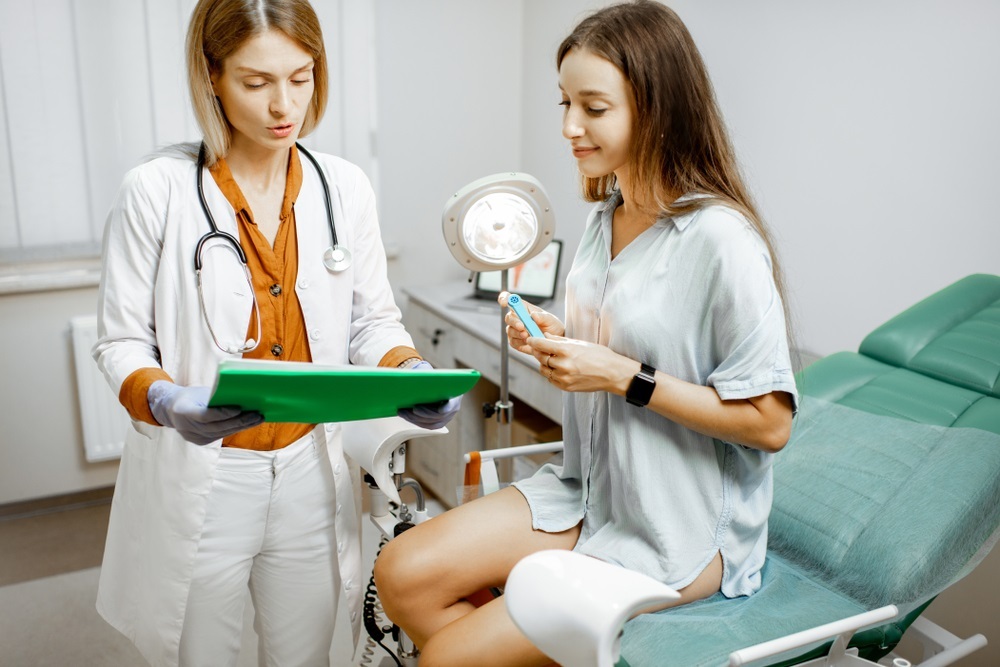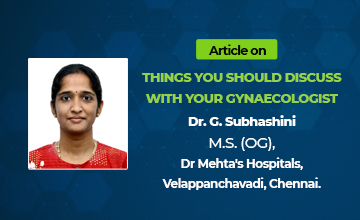Your first gynecology appointment can seem intimidating, but after that, you become used to it. Some women become so comfortable with their gynecologists that they decide to use them as their primary physicians. Because gynecologists deal with such an intimate part of the body, they frequently go above and beyond to ensure their patients are at ease. Despite this, many women are uncomfortable discussing what’s going on “down there.” Although it can be uncomfortable to discuss one’s sexual habits, vaginal odors, or physical changes, it is critical for gynecologists to know everything in order to provide proper treatment. Many women are self-conscious about their vaginal health, but there is nothing you can say or show your gynecologist that they haven’t already seen.

Most women regard their gynecologist appointments as a chore, and when they are finished, they feel a great sense of relief. Reproductive health should never be taken lightly, and all women should prioritize regular checkups with their gynecologists regardless of whether they are experiencing any problems with their reproductive system. In addition to these routine appointments, women should consider having a pap smear at least once a year. It is important to schedule regular visits with your gynecologist in order to stay on top of your reproductive health, as well as get answers to any questions you might have about what you are experiencing. Especially when it comes to sexual and reproductive health, it can be difficult to distinguish between what is “normal” and what may indicate a potential health problem. Regardless of how embarrassed you feel about certain issues, your gynecologist is there to help you, not pass judgment on you.
While most women are nervous about visiting a gynecologist, this should not be a cause for concern in the first place because gynecologists have a lot of experience dealing with similar cases such as what you may be experiencing, and so you do not need to feel anxious when discussing your problems with them, even while disclosing your most intimate details. In the following paragraphs, you will find some topics you should always discuss with your gynecologist, that will assist them in evaluating the treatment method that will benefit you the most.
Painful Periods
A little discomfort or cramping during the period is normal. However, if the pain becomes so severe that it interferes with your daily life, do not ignore it. Women frequently ignore body aches or painful cramps during their periods, believing that they are normal and around 65% of adolescent and young girls experience breast pain, cramps in the lower abdomen & headaches as some of the common symptoms. If your periods are very painful and getting worse over time it can be a sign of endometriosis or uterine fibroids. It is critical that you visit a gynecologist you trust and get examined.
Premenstrual Syndrome (PMS)
You might feel moody, have tender breasts, desire foods, and be fatigued, irritable, or depressed during PMS. Premenstrual syndrome is thought to affect up to three out of every four menstruating women. Recurrence patterns of these symptoms can be predicted. However, the physical and emotional changes that one may experience with the premenstrual syndrome can range from barely noticeable to excruciatingly painful. Although the precise causes of premenstrual syndrome are unknown, several factors such as cyclic hormonal changes, chemical variations in the brain, and depression have been found in women suffering from PMS.
Premenstrual syndrome can be reduced or managed with treatments and lifestyle changes. If your premenstrual syndrome affects your relationships or routine activities, then you need expert guidance.

Irregular periods
An irregular period can be caused by several factors, such as stress, diet modification, pregnancy, infection, and hormonal problems, but this should not be overlooked. Even when you’re certain you’re not pregnant, your gynecologist will notice changes in the timing or circulation of your period. Irregular periods for the first 3-4 year after attaining menarche is normal. If the irregular periods associated with acne, obesity, hairy face, and hair fall may be due to hormonal imbalance should be diagnosed and treated by Gynaecologist.
Abnormal Vaginal Discharge and Odour
Vaginal discharge may physiological or pathological. Physiological vaginal discharge occurs during ovulation and premenstrual. If the vaginal discharge is foul-smelling/ fishy odor associated with an irritation or itching in the vulval region it might be an indication of vaginal infection. Normal vaginal discharge is unobtrusive, but discharge accompanied by itching, irritation, pain, redness or vaginal swelling, foul odor, and other symptoms should be taken seriously. Abnormal vaginal discharge is typically yellow or green in color, chunky, and odorless. If you have such discharges, you should see a gynecologist as soon as possible. Similarly, while vaginal odor can be an unpleasant topic, it is critical to consult your doctor if there is a foul or fishy odor, or if there is a change in your normal smell that lasts for a few days, as this could be caused by bacterial overgrowth or a vaginal infection.
Itching burning sensation in the private parts
Vaginal itching is an unpleasant condition that can also cause painful symptoms. It may be due to fungal infection of the vagina, sexually transmitted infection, skin or vaginal disorders. Discomfort or pain while passing urine may be due to a urinary tract infection. In severe cases, such sort of irritation may also be caused due to vulvar cancer or excessive stress on the vulva. The correct diagnosis of the condition is critical. Women are advised not to ignore excessive itching because it could be a sign of a serious disease or condition. Do not be afraid to discuss such concerns with a gynecologist. If left untreated, it can result in serious vaginal infections.
Swelling, heaviness, and Constant pain in the lower abdomen. This can be due to underlying ovarian/uterine pathology (Ovarian cyst, Uterine fibroid, etc.).
Pain during Sex
This can be an indication of vaginal muscle spasm or vaginal infection / vaginal dryness or short vagina or sometimes due to endometriosis. It is vital to discuss sexual discomfort with your doctor. You may feel awkward discussing it, but your gynecologist can help explain and treat your concerns. Switching positions or using lubricant may alleviate the pain, but if it does not, it is critical to consult a gynecologist and have it examined because there may be other underlying medical reasons.
Urinary or Faecal Incontinence
Urinary or faecal incontinence is stressful and can affect the quality of life. many women will experience these symptoms after childbirth particularly if they had a large baby or vaginal delivery requiring vacuum or forceps. Urinary incontinence can be caused by childbirth, pelvic floor surgery, or menopause. Nerve damage and vaginal childbirth can both cause faecal incontinence. Urinary and faecal incontinence can be treated medically or surgically. The most important thing to remember is that incontinence is not a normal part of aging. Speak with your gynecologist; there is treatment available for this common condition.

Swelling or Bumps in private parts
It can be concerning to notice a lump or abnormality growing in your vagina or around your labia. Swelling or bumps are often benign but it is important to consult your gynecologist for proper examination. It’s possible that these are symptoms of an STD or an underlying medical condition. Although such bumps are found to be harmless, it is important to conduct an examination if you notice something unusual. Since some diseases, such as genital warts, are most visible for a long time, but lesions caused by herpes can heal in 7 to 14 days, it is critical to detect an outbreak when it occurs.
Article by

Dr. G. Subhashini
M.S. (OG)
Dr. Mehta’s Hospitals,
Velappanchavadi, Chennai.

